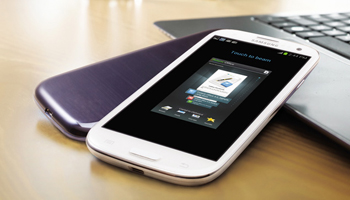 Berlin, Sept 15: Samsung will launch two smart phones in India this month for less than Rs 15,000, intensifying competition in the mid-segment mobile market.
Berlin, Sept 15: Samsung will launch two smart phones in India this month for less than Rs 15,000, intensifying competition in the mid-segment mobile market.
The Korean company, which has a 49 per cent share in India's smart phone segment, will offer options in local languages to attract non-English speaking customers.
"We will be launching two new smart phones priced for the mid-segment market. Every phone from Samsung will have nine vernacular language options," Samsung Country Head (Mobile Business) Vineet Taneja told PTI, without mentioning the prices.
However, a company official said the phones may be priced in the Rs 5,000-15,000 range. Most mobile phones in India are sold in this price range, including Nokia Lumia 520 and 620, Blackberry Curve, Xolo smart phones and Micromax Canvas 2.
The Samsung phones will offer access to content and applications in Hindi, Punjabi, Tamil, Bengali, Telugu, Kannada, Malayalam, Marathi and Gujarati.
"The competition now in the smart phone market is how to make the phone size small without compromising on the screen size," Taneja said.
The company is set to launch its premium high-end smart phone, the Galaxy Note 3, on Tuesday.
Samsung currently offers about 17 smart phones priced between Rs 5,000 (Samsung Star) and Rs 39,000 (S4).
Taneja said the company is focusing on the mid-end to high-end smart phone market and will provide dual-SIM option in all handsets.
"Going forward, you will see more and more dual-SIM phones coming up," he said.
According to telecom magazine Voice&Data, Samsung toppled Nokia from its leadership position in the financial year 2012-13 with revenue of Rs 11,328 crore and a 31.5 per cent market share. Nokia's market share stood at 27.2 per cent.





Comments
Thank you for the auspicious writeup. It in fact was a enjoyment account it.
Look complicated to far added agreeable from you!
However, how can we be in contact?
Also visit my web blog; ???????????: http://www.rakzmobile.com/pro_3g/ais_12call.html
Add new comment